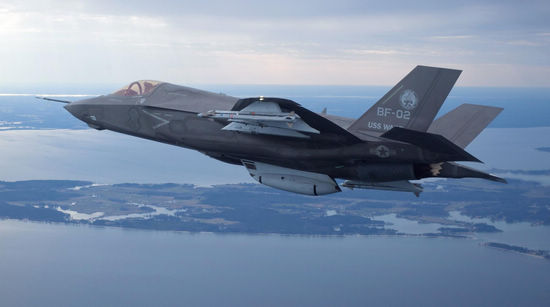F-35 production quality worries US Senate panel
(Agencies) Updated: 2012-06-06 10:57
 |
|
The US Marine Corps version of Lockheed Martin's F35 Joint Strike Fighter, F-35B test aircraft BF-2 flies with external weapons for the first time over the Atlantic test range at Patuxent River Naval Air Systems Command in Maryland in a February 22, 2012 file photo. [Photo/Agencies] |
WASHINGTON - The US Senate Armed Services Committee on Tuesday questioned the quality of production on the Lockheed Martin Corp F-35 Joint Strike Fighter, citing a "potentially serious issue" with its electronic warfare capability.
"The committee is ... concerned about production quality and whether it is sufficient to ensure the delivery of JSF aircraft to the US and its allies at an affordable price," the committee said in a report accompanying its fiscal 2013 defense budget bill.
Italy has already scaled back its planned orders for the new, radar-evading warplane and several other countries are slowing their orders, citing budgetary pressures. Japan has warned it could cancel its order if the cost per plane rises from what it was offered.
Lockheed is building the new radar-evading fighters for the US military and eight foreign countries helping to fund its development, Britain, Norway, Canada, Denmark, the Netherlands, Turkey, Australia and Italy. Japan and Israel have also ordered the fighters for their militaries.
Questions over the quality of production of the F-35 will compound the mounting woes of the $396 billion Pentagon program, which has already been restructured three times in recent years to extend the development phase and slow production.
The committee said it was troubled by the average rate of scrap, rework and repair at Lockheed's Fort Worth, Texas facility from 2009 through the first two months of 2012, but gave no details.
"Inattention to production quality" had led to the discovery of a potentially serious issue with an aperture on the plane that was critical to its electronic warfare capability, the report said. The full extent of the problem was not known, but it underscored the need for the Pentagon and Lockheed to "rigorously manage production quality," it said.






